|
YELLOWSTONE
"The place where Hell bubbled up" A History of the First National Park |

|
THE LEGACY OF YELLOWSTONE
The generation that set aside Yellowstone National Park created more than anyone could have foreseen at the time. The establishment of the park was initially a negative reaction to the prospect that this wondrous region might be divided and exploited for private ends, thereby denying it to others. The founders determined that Yellowstone should be reserved for the "benefit and enjoyment" of all. Over a half century, the practicalities of what such a national park should be were worked out.
Yet Yellowstone was always more than a place for a frolic in the wilderness. The park was something to be proud of, and its creators exhibited their pride throughout their lives. It was a pride that came not from "civilizing" the wilderness but from knowing that a place of wild beauty had been preserved. Yellowstone was, as they saw it, their gift to the people.
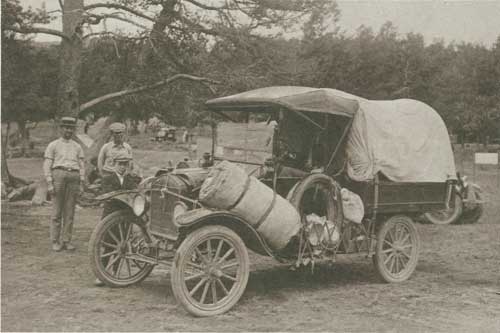
|
| The compleat camper, 1924 style. |
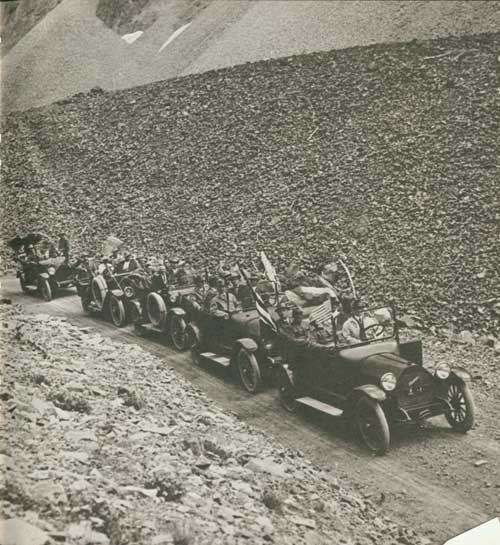
|
| The first automobiles to cross Sylvan Pass, July 4, 1915. |
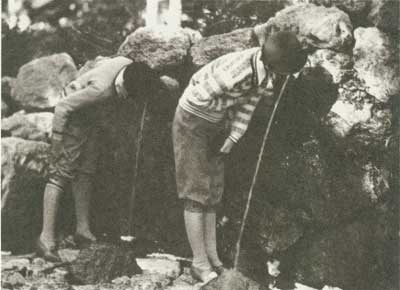
|
| Few visitors could resist the temptation to drink from Appollinaris Spring. |
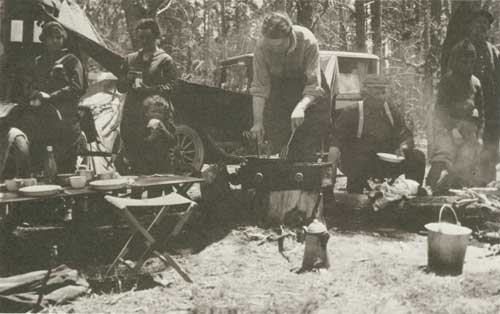
|
| Suppertime in an auto camp, 1921. |
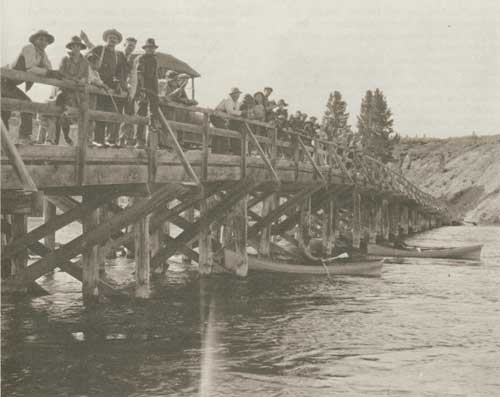
|
| Enjoying the pleasures of Fishing Bridge in the early 1920's. Expensive petticoats and parasols no longer predominate among visitors to Yellowstone. |
But their gift was greater than even they realized at the time. The years have shown that their legacy, the establishment of Yellowstone National Park, led to a lasting concept—the national park idea. This idea conceived the wilderness to be the inheritance of all the people, who gained more from an experience in nature than from private exploitation of the land. In time, the idea blossomed in the form of many new national parks, begotten in the same spirit as Yellowstone.
The national park idea was part of a new view of the Nation's responsibility for the public domain. By the end of the 19th century, many thoughtful people no longer believed that the wilderness should be fair game for the first persons who could claim and plunder it. Its fruits were the rightful possession of all the people, including those yet unborn. Besides the areas set aside as national parks, still greater expanses of land were placed into trusteeship in national forests and other reserves so that the country's natural wealth—in the form of lumber, grazing, minerals, and recreation—should not be consumed at once by the greed of a few, but should perpetually bestow its rewards.
The preservation idea, born in Yellowstone, spread around the world. Scores of nations have preserved areas of natural beauty and historical worth so that all mankind will have the opportunity to reflect on their natural and cultural heritage, and to return to nature and be spiritually reborn in it.
Of all the benefits from Yellowstone National Park, this may be the greatest.
| <<< Previous | <<< Contents>>> |
clary/sec8.htm
Last Updated: 04-Nov-2009